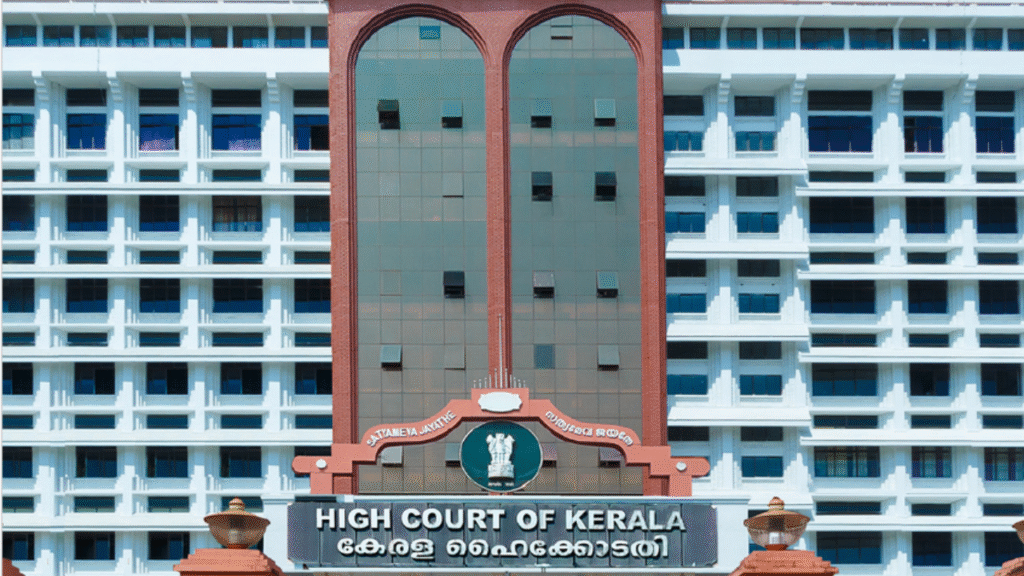Special Economic Zones Act, 2005 (SEZ Act) – Sections 23, 42, 51 – Kerala Buildings (Lease and Rent Control) Act, 1965 (KBLR Act) – Public Premises (Eviction of Unauthorised Occupants) Act, 1971 (PPEUO Act) – Constitution of India, Articles 251, 254, Entry 41 List I, Entry 18 List II, Entries 6, 7, 13 List III – Arbitration and Conciliation Act, 1996 – Kerala Industrial Single Window Clearance Board and Industrial Township Area Development Act, 1999 – Section 17.
M/S. MUSTHAFA & ALMANA INTERNATIONAL CONSULTANTS v. SMARTCITY (KOCHI) INFRASTRUCTURE PVT. LTD. [2025:KER:56544] IN THE HIGH COURT OF KERALA AT ERNAKULAM PRESENT: DR. JUSTICE A.K. JAYASANKARAN NAMBIAR & MR. JUSTICE P.M. MANOJ Decided On: JULY 31, 2025
Nature of Dispute & Jurisdiction – Interplay of SEZ Act and Rent Control Legislation: An Original Petition (Rent Control) was filed by a developer, SmartCity (Kochi) Infrastructure Pvt. Ltd., to evict an entrepreneur firm, M/s. Musthafa & Almana International Consultants, from premises within a Special Economic Zone (SEZ) for default in rent payment, under the Kerala Buildings (Lease and Rent Control) Act, 1965 (KBLR Act). The Rent Control Court had found the petition maintainable, rejecting arguments that the dispute was arbitrable or that the SEZ Act had an overriding effect. The High Court, however, set aside the Rent Control Court’s order, dismissing the eviction petition as not maintainable.
Arbitrability of Disputes in SEZ: The High Court clarified that while landlord-tenant disputes generally governed by rent control legislations are considered non-arbitrable by the Supreme Court in Vidya Drolia & Others v. Durga Trading Corporation due to specific statutory forums and special rights/obligations, this principle does not apply to all tenancy agreements. In this case, the landlord-tenant relationship was deemed merely incidental to the primary relationship of developer and entrepreneur under the SEZ Act. The entrepreneur firm was allotted space within the SEZ because it qualified as an entrepreneur, and this privilege could be withdrawn for breach of SEZ Act/Rules. Therefore, the dispute regarding rent payment stemmed from the entrepreneur-developer relationship and, as per Section 42 of the SEZ Act, had to be adjudicated through statutory arbitration, as arbitration is the sole adjudication mechanism mandated by the SEZ Act when no designated court exists under Section 23.
Overriding Effect of SEZ Act over KBLR Act: The SEZ Act is a central legislation (Union List, Entry 41), while the KBLR Act is a state legislation (State List, Entry 18, and Concurrent List, Entries 6, 7, 13). The High Court held that there is no repugnancy between the two statutes if they cover different fields. The dominant intention or ‘pith and substance’ of the relationship determines which law applies. Since the tenancy was incidental to the parties’ primary status as developer and entrepreneur under the SEZ Act, the dispute falls within the scope of the SEZ Act. Section 51 of the SEZ Act provides for its overriding effect over inconsistent provisions in other laws. Furthermore, the State Government, through G.O.(Rt) No.23/2003/ID, had declared the Cochin Special Economic Zone as an Industrial Area under the Kerala Industrial Single Window Clearance Board and Industrial Township Area Development Act, 1999. Section 17 of the 1999 Act explicitly states that the KBLR Act, 1965 shall not apply to any premises belonging to an Industrial Township authority. Thus, leased premises within SEZs are not governed by the KBLR Act.
Remedy of Eviction: The High Court concluded that the developer’s chosen remedy under the KBLR Act was not legally available. The dispute over rent arrears is integral to the entrepreneur’s entitlement to continue in the SEZ. A breach of the lease terms, being a condition for the entrepreneur’s approval, could lead to its cancellation, rendering the firm an ‘unauthorised occupant’ under the Public Premises (Eviction of Unauthorised Occupants) Act, 1971 (PPEUO Act), as the lands are vested in the Central Government. Therefore, the developer could pursue eviction under the PPEUO Act, indicating that a remedy exists, just not under the KBLR Act. The reasoning in Vidya Drolia regarding the non-arbitrability of rent control disputes does not apply to the facts of this case.
Result: The Original Petition (Rent Control) was allowed, and the Rent Control Court’s order was set aside. R.C.P.No.134 of 2020 was dismissed as not maintainable.


